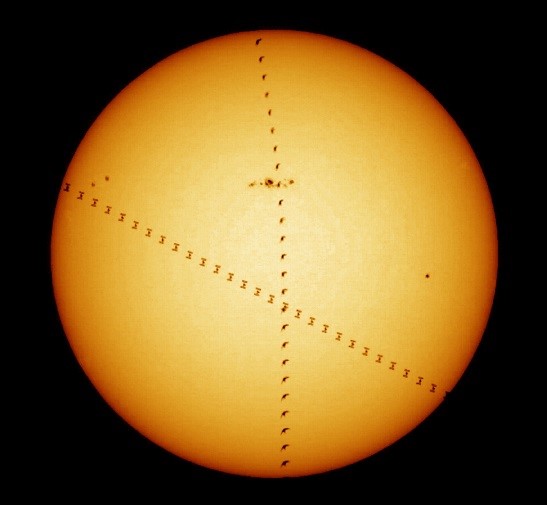(Printable version, go to full version)
Index:
2019 Trainee Project
CESAR ESAC Solar Observatory Master Control Programme
ESAC supervisor(s): Miguel Perez-Ayúcar, Santa Martinez, Michel Breitfellner and Javier Ventura
 CESAR (Cooperation through Education in Science and Astronomy Research) is a joint educational programme developed by the European Space Agency (ESA), the Spanish National Institute for Aerospace Technology (INTA) and INTA-owned company ISDEFE. Its objective is to provide students from European secondary schools and universities with hands-on experience in Optical and Radio Astronomy. In addition, CESAR shall contribute with outreach activities to promote Space Science and to stimulate European students' interest in Science and Technology in general and Astronomy in particular.
CESAR (Cooperation through Education in Science and Astronomy Research) is a joint educational programme developed by the European Space Agency (ESA), the Spanish National Institute for Aerospace Technology (INTA) and INTA-owned company ISDEFE. Its objective is to provide students from European secondary schools and universities with hands-on experience in Optical and Radio Astronomy. In addition, CESAR shall contribute with outreach activities to promote Space Science and to stimulate European students' interest in Science and Technology in general and Astronomy in particular.
As part of the CESAR initiative, a permanent Solar Observatory (CESO) was installed at ESAC, Madrid, Spain in 2012 http://cesar.esa.int/index.php?Section=Observatories_ESAC_Sun
It consists of two telescopes:
- Coronado Solarmax II 90 with double Stack Filter, H-alpha
- Bresser AR-102, visible (white-light).
The telescopes are mounted on a Celestron CGEM GOTO mount, installed in a Scopedome 3M. The dome is connected to a AAG CloudWatcher weather station. The cameras currently used are two QHY5-II. A second set of portable telescopes, mounts and cameras is also available for testing, and specific observations from remote locations.
The CESAR ESAC Solar Observatory (CESO) is designed to work completely autonomous delivering H-alpha and visible light images every minute if meteorological conditions allow it. Those images are acquired by two QHY5-II cameras and transferred from the computers in the dome to a server where they are processed and archived. Last processed images are displayed on the CESAR webpage.

Proposed Tasks:
The project objective is to develop the master program that controls the automatic and remote operations of the Solar Observatory at ESAC. It entails the following aspects:
-
Understand how the current Helios observatory works, and which parts are key for a master control program.
- the Observatory is composed of the dome, weather station, mount, telescopes, cameras, focusers, guiding system, master computers, network connections for data transfer, webcams, power UPS
-
the basic steps of the observatory operations are:
- switch on units at daybreak
- check on weather conditions and open dome
- point telescopes to Sun and track
- initiate image capture and processing pipelines
- flip mount at meridian pass
- stop imaging, pipelines and close dome before sunset
- monitor weather conditions and actuate of dome closure-opening
- Develop the underlying master control program to control the daily operations of the Observatory, using Python and ASCOM as the programming languages and platforms.
-
Develop an intuitive simple GUI for an operator to control the operations of the Observatory.
- Two levels of automation are foreseen: semi-automatic with manual intervention, and fully automatic
- OK-NOT_OK displays should be available for the operator to understand the units status.
- Parameter windows should be available for the operator to monitor the current observation status. This should be linked to the sub-systems status
The final result of the project should be a working control program that controls and monitors the automatic operations of the Solar Observatory with an intuitive user interface.
Project duration:
6 months
Desirable expertise or programming language:
- Good knowledge of physics and mathematics.
- Practical experience in Python programming and UNIX environments.
- Experience with image processing.
- Knowledge of ASCOM program for astronomical equipment (dome, mount, cameras...)
- Practical experience in observing with amateur would be an asset.